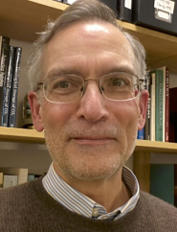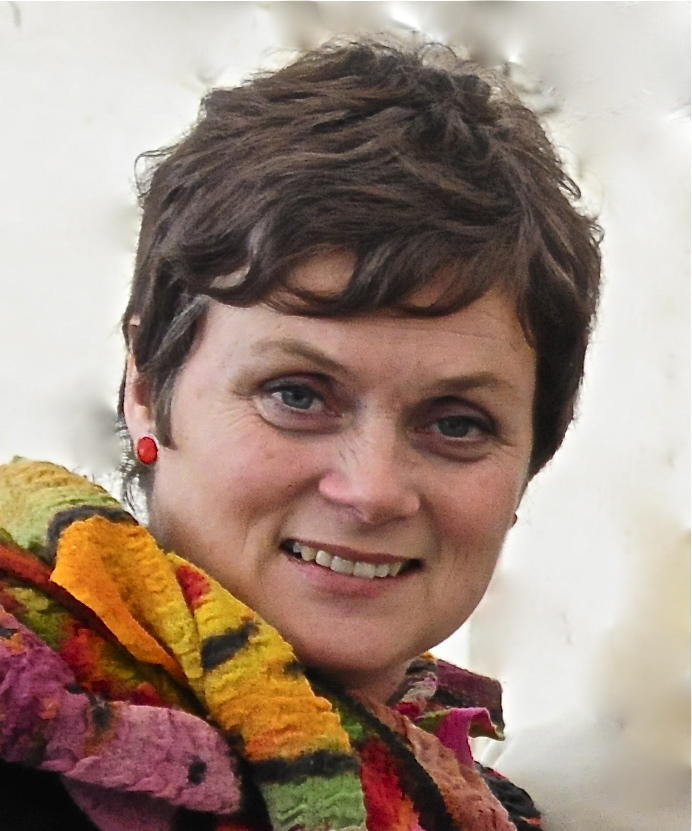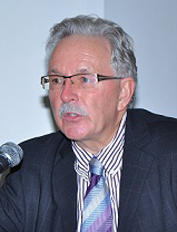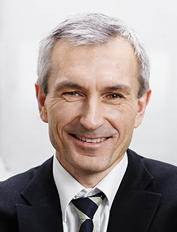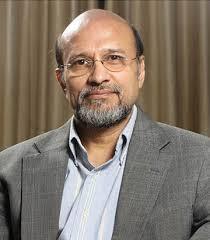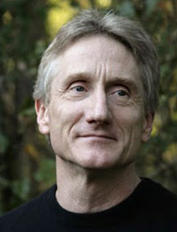Keynotes

Main content
Energy and sustainability in a carbon-constrained world
Energy and sustainability in a carbon-constrained world
Michael A. Celia
Professor of Civil and Environmental Engineering
Princeton University, USA
This year marks a milestone in the relentless alteration of the earth by humans: the atmospheric concentration of carbon dioxide will surpass 400 parts per million. This represents an increase of about 45% relative to the concentration prior to the industrial revolution. It is also 35% larger than any concentration in the atmosphere for at least the past one million years.
Because CO2 is a greenhouse gas, this increase in atmospheric concentration is leading to a rapidly changing (warming) planet. This relentless increase in atmospheric carbon has been, and continues to be, driven by anthropogenic emissions, mostly from fossil fuel combustion. With a quantitative and self-consistent measure of sustainability, we can show that emissions from fossil fuel combustion have made human activities globally unsustainable. In order to define a practical path back to a sustainable existence, the atmospheric carbon problem must be solved. This requires large-scale transformations of the energy system.
In this presentation, I will discuss the concept of sustainability, identify practical paths that can move us toward a sustainable future, and consider the level of effort required to follow a path to sustainability. While paths to sustainability can be identified, their development and implementation remains a grand challenge for the 21st century.
Michael Celia is currently Director of the Program in Environmental Engineering and Water Resources. Professor Celia's areas of research include groundwater hydrology, multi-phase flow in porous media, numerical modelling, and subsurface energy systems with a focus on geological sequestration of carbon dioxide and shale-gas systems. Ongoing projects include development of new simulation tools to model CO2 injection, migration, and possible leakage associated with carbon capture and geological sequestration (CCS); studies of multi-phase flow and transport in porous media with a focus on multi-scale models, including pore-scale models; and measurements and modelling for shale-gas systems with a focus on methane leakage, possible CO2 injection into depleted shale-gas reservoirs, and the fate of fracking fluids. The CCS work is part of a large industry-funded multi-disciplinary effort at Princeton known as the Carbon Mitigation Initiative.
Professor Celia was editor of the journal Advances in Water Resources. He is a Fellow of the American Geophysical Union and the American Association for the Advancement of Science. He was the 2005 recipient of the AGU Hydrologic Sciences Award; the 2008 Darcy Lecturer for the National Ground Water Association (title of the lecture: Geological Storage as a Carbon Mitigation Option; the lecture was given at 52 different venues in 12 countries). He was also the 2010 Pioneers in Groundwater lecturer for the American Society of Civil Engineers, received the 2012 Hydrology Days Award, and is the 2014 recipient of the Honorary Membership Award from the International Society for Porous Media (Interpore). He was also a contributing author for the IPCC Working Group III Special Report on Carbon Dioxide Capture and Storage.
The role of law in the pursuit of sustainable development
The role of law in the pursuit of sustainable development
Siri Gloppen
Professor and Director of the Centre on Law and Social Transformation
University of Bergen / CMI
Sustainable development can be understood in terms of respecting, protecting and progressively realizing human rights for all, future as well as current human beings. Human rights – as laid down in international treaties and national constitutions – represent promises that we have made to each other, national and globally to secure for all members of our society the social, political and material basis for a life with dignity. The Sustainable Development Goals (SDGs) embody the commitment to progressively realize fundamental human rights norms, including the rights of all to health, education and a healthy environment. To properly employ human rights based approaches and the accountability mechanisms provided by law and legal institutions, will be crucial f we are to realize the vision reflected in these goals – and deliver on the commitment to equality, non-discrimination and to vulnerable groups.
Siri Gloppen is Professor of Comparative Politics at the University of Bergen and Director of the CMI-UiB Centre on Law & Social Transformation (LawTransform), which is a global hub for research on law as an instrument of social change, with particular focus on the global south. Gloppen’s research is at the intersection of law and politics and covers topics such as: the social and political role of courts; human rights; constitution making and constitutionalism; legal mobilization and litigation (health rights; sexual and reproductive rights, land rights, climate and environmental rights); electoral processes; accountability institutions; transitional justice and reconciliation processes. Empirical focus is on Southern and East Africa, India. She has lead a number of cross-regional projects comparing the role of courts legal mobilization in Latin America, Africa and Asia. Publications include Court and Power in Latin America and Africa (Palgrave 2010) and Litigating Health Rights: can courts bring more justice to health (Harvard 2011).
Are the SDGs better than the MDGs?
Are the Sustainable Development Goals better than the Millennium Development Goals?
CANCELLED
David Hulme
Professor of Development Studies
The University of Manchester, UK
This presentation explores the ways in which the SDGs can be seen as more progressive than the MDGs, and the ways in which they might not be. A political economic analysis reveals that the processes behind the Sustainable Development Goals have been much more inclusive and democratic than those that created the MDGs. But are 17 goals, 169 targets and (perhaps) 1,000 indicators an improvement on 8 goals, 21 targets and 60 indicators?
David Hulme is Professor of Development Studies at The University of Manchester where he is Director of the Brooks World Poverty Institute and CEO of the Effective States and Inclusive Development Research Centre. Currently, he is the president of the Development Studies Association.
Professor Hulme has worked on rural development, poverty and poverty reduction, microfinance, the role of non-government organisations in development, environmental management, social protection and the political economy of global poverty for more than 30 years. His main focus has been on Bangladesh but he has worked extensively across South Asia, East Africa and the Pacific. Recently, he has been a leading international expert in the discussion of the Millennium Development Goals and the Post-2015 Development Agenda.
Among other appointments, Pr. Hulme is currently an academician of the Academy of Social Sciences, a member of the Scientific Committee of the Comparative Research on Poverty Programme of the International Social Science Council (ISSC) and a board member of the United Nations Research Institute for Social Development (UNRISD). He is also the vice-chair of the ESRC/DFID Poverty Alleviation Research Grants Committee.
The process from MDG to SDG
The process from MDG to SDG
Bjørn-Inge Larsen
Secretary General
Norwegian Ministry of Health and Care Services
Global health has gained increased momentum over the last decade, not least due to the prominent role of health in the UN Millennium Development Goals. Contributing to attaining these health goals has been a priority for Norwegian governments. Dr. Larsen will, taking his own experiences in the field of global health cooperation as a starting point, reflect on what the transition from the Millennium Development Goals (2000-2015) to the new Sustainable Development Goals (2015-2030) will mean for addressing social, environmental and economic challenges in a sustainable manner at national and international level.
Bjørn-Inge Larsen is Secretary General in the Norwegian Ministry of Health and Care Services. He has previously been Director General of Health, leader of the Norwegian Directorate of Health and Chief Medical Officer. He has also been Assistant Director at the National Board of Health and County Medical Officer in Vestfold and Finnmark counties.
From 2008-2009 he was chair of the Standing Committee of the WHO European Regional Committee. From 2010-2013 he represented Norway in the WHO Executive Board. In 2012 he was chair for formal consultation on the Global Monitoring Framework and voluntary targets for non-communicable diseases in the WHO. He has been the leader of the National Health Sector Council for Quality and Prioritization, as well as the National Committee and the National Health Preparedness Council. From 2013 he is chair of the OECD Health Committee.
Larsen graduated as doctor from the University of Oslo in 1986, as well as being a corporate economist with a degree from BI in Norway, and he has a master's degree in economics and public health from the University of California Berkeley from 1994.
SDG, a framework for research, higher learning and innovation
Sustainable Development Goals, a framework research, higher learning and innovation
Dag Rune Olsen
Rector
University of Bergen
Dag Rune Olsen is Rector at the University of Bergen from 2013. He holds a master degree in biomedical physics from the Norwegian University of Science and Technology, Trondheim, and a PhD in medical physics, University of Oslo. Olsen started his career as a medical physicist at the Norwegian Radium Hospital, where he later became department head at the Institute for Cancer Research and a professor at the University of Oslo. In 2010 he accepted the position as dean at the Faculty of Mathematics and Natural Sciences at UiB, a position Olsen held until he was elected rector in 2013.
Olsen has published more than 120 papers in international peer-review journals within the field of medical physics applied to radiation oncology. His research has lately focused in biologically adapted radiation therapy of cancer, based on functional medical imaging. Olsen has served as editorial board member of several international journals within his field, and as committee, council and board member and chair of national and international scientific societies.
Olsen was awarded the Klaas Breur medal in 2008 for his research. In 2010 he was elected member of Academia Europaea and member of the Norwegian Academy of Technological Sciences in 2013.
Spirituality after Darwin
Spirituality after Darwin: ‘Dark Green’ Nature Religion and the Future of Religion and Nature
Bron Taylor
Professor of Religion, Nature, and Environmental Ethics
University of Florida, USA
New Religions come and go but some persist and become major global forces. In this presentation Professor Taylor presents evidence that, especially since Charles Darwin published On the Origin of Species in 1859, a new, global, earth religion has been rapidly spreading around the world. Whether it involves conventional religious beliefs in non-material divine beings, or is entirely naturalistic and involves no such beliefs, it considers nature to be sacred, imbued with intrinsic value, and worthy of reverent care.
Those having affinity with such spirituality generally have strong feelings of belonging to nature, express kinship with non-human organisms, and understand the world to be deeply interconnected. In a recent book Taylor labelled such phenomena ‘dark green religion’, noting that its central ethical priority is to defend the earth’s biocultural diversity.
Taylor provides a wide variety of examples of new forms of religious (and religion-resembling) cultural innovation among those promoting such nature spirituality, from individuals (including artists, scientists, filmmakers, photographers, surfers, and environmental activists), to institutions (including museums, schools, and the United Nations). By tracking these, Taylor provides an opportunity to consider what such spirituality may portend for the religious and planetary future.
Bron Taylor is Professor of Religion, Nature, and Environmental Ethics at the University of Florida, and a Carson Fellow of the Rachel Carson Center for Environment and Society in Munich Germany. His research involves both ethnographic and historical methods, and much of it focuses on grassroots environmental movements, their emotional, spiritual, and moral spiritual dimensions, and their environmental, cultural, and political impacts.
Taylor has been involved in a variety of international initiatives promoting the conservation of biological and cultural diversity. His books include Dark Green Religion: Nature Spirituality and the Planetary Future (2010), the award winning Encyclopedia of Religion and Nature (2005), Civil Society in the Age of Monitory Democracy (2013) and Ecological Resistance Movements: the Global Emergence of Radical and Popular Environmentalism (1995), and Avatar and Nature Spirituality (2013).
Taylor is also the founder of the International Society for the Study of Religion, Nature and Culture, and editor of its affiliated Journal for the Study of Religion, Nature and Culture. For more information see www.brontaylor.com.
